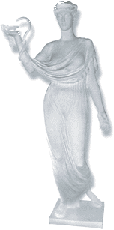

Ministry of Public Health and Social Development of RF
Russian Academy of Medical Sciences
Siberian Branch of Russian Academy of Medical Sciences
Siberian Branch of Russian Academy of Sciences
Medical Polar Fund “Science”
The Northern Forum



|
||

|
International Union for Circumpolar Health Ministry of Public Health and Social Development of RF Russian Academy of Medical Sciences Siberian Branch of Russian Academy of Medical Sciences Siberian Branch of Russian Academy of Sciences Medical Polar Fund “Science” The Northern Forum |
 
|
 |
Performance and Health in Cold Climate
Objectives. The aim of the study was to assess how moderate cold exposure affects cognitive performance accuracy, response times and efficiency. The other objective was to determine whether cold acclimation, causing cold habituation responses, would improve cognition.
Study design. A controlled laboratory trial.
Methods. Ten young male subjects were exposed to control (25 °C) and cold (10 °C) conditions on 10 successive days. A subset of the Automated Neuropsychological Assessment Metric for Isolated and Confined Environments (ANAM-ICE) were administered each day under control and cold conditions to assess attention and concentration, mental flexibility, spatial processing, memory and cognitive processing accuracy, efficiency and response time. Rectal (Trect) and skin temperatures, thermal sensations, metabolic rate (M) and cardiovascular reactivity were also recorded.
Results. With the used cold exposure, which induced cold sensations and discomfort, superficial skin cooling (6-7 °C) and a slightly lowered Trect (0.4 °C), we observed three distinct patterns of cognitive performance. These were: 1) negative effects, reflected in increased response time and decreased accuracy and efficiency; 2) positive effects, reflected in decreased response time and increased efficiency; and 3) mixed effects, reflected in a pattern of increases in both accuracy and response time and decreases in efficiency, and a pattern of decreases in both accuracy and response time. Of the physiological variables Trect, thermal sensations, diastolic blood pressure (DBP) and heart rate (HR) were independent predictors of decreased accuracy, but also decreased response time. Efficiency for performing the cognitive tasks was significantly improved and response time shorter over the 10-d period both under control and cold exposures, suggesting a learning effect. However, these successive changes in cognitive performance over time did not differ markedly between control and cold, indicating that cold acclimation over the 10-d period did not improve performance.
Conclusions. The results suggest that cold affects cognitive performance negatively through the mechanisms of distraction and both positively and negatively through the mechanism of arousal caused by cold exposure.
Note. Abstracts are published in author's edition
|
Mail to webmaster
Main page |
© 1996-2005, Siberian Branch of Russian Academy of Sciences, Novosibirsk
Last update: 06-Jul-2012 (11:52:05)